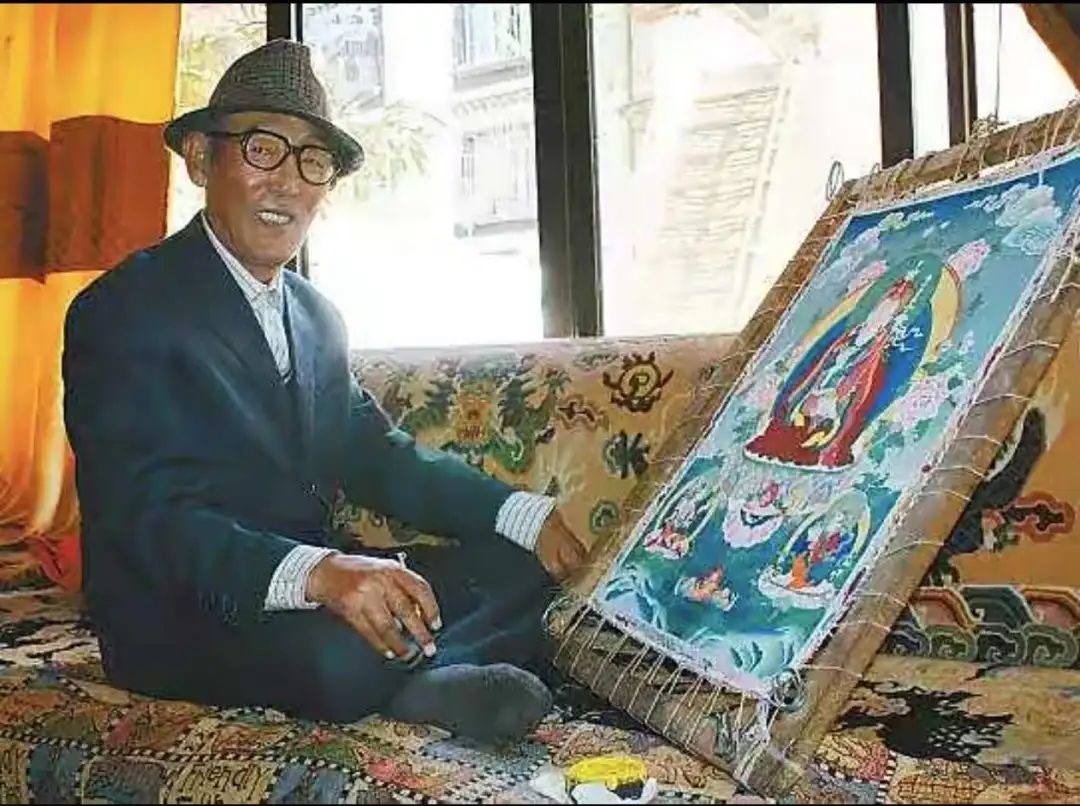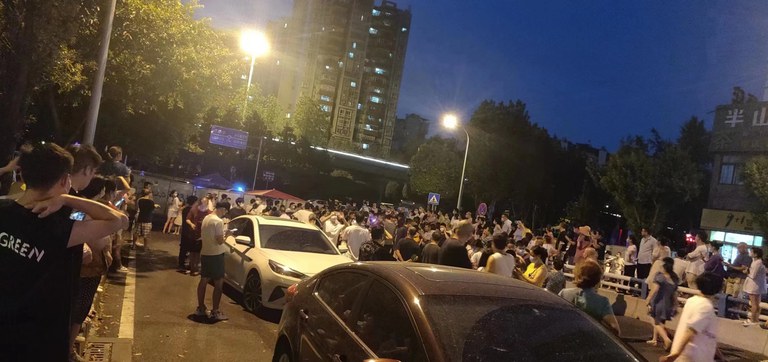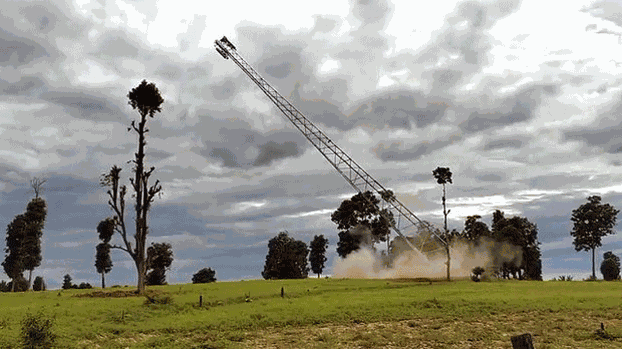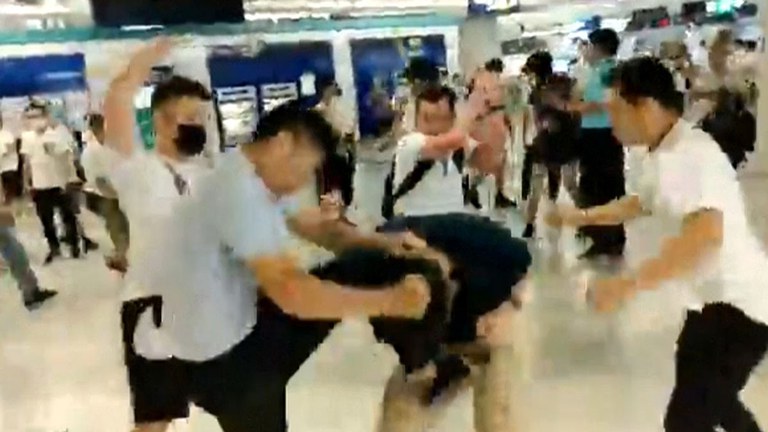UPDATED at 9:29 p.m. EDT on 8-31-2022 China’s repression of Uyghurs and other Turkic minorities in its western Xinjiang province “may constitute international crimes, in particular crimes against humanity,” the U.N.’s human rights chief said Wednesday in a long-awaited report issued on her last day on the job. The report issued by U.N. High Commissioner of Human Rights Michelle Bachelet says that “serious human rights violations” have been committed in the Xinjiang Uyghur Autonomous Region (XUAR) in the context of the Chinese government’s application of counter-terrorism and counter-“extremism” strategies. “The implementation of these strategies, and associated policies in XUAR has led to interlocking patterns of severe and undue restrictions on a wide range of human rights,” the report states. “These patterns of restrictions are characterized by a discriminatory component, as the underlying acts often directly or indirectly affect Uyghur and other predominantly Muslim communities.” The 46-page report goes on to say that the human rights violations documented in the Office of the High Commissioner for Human Rights’ (OHCHR) assessment, flow from “a domestic ‘anti-terrorism law system’ that is deeply problematic from the perspective of international human rights norms and standards.” The system contains vague and open-ended concepts that give officials wide discretion to interpret and apply broad investigative, preventive and coercive powers, amid limited safeguards and little independent oversight, the report says. “This framework, which is vulnerable to discriminatory application, has in practice led to the large-scale arbitrary deprivation of liberty of members of Uyghur and other predominantly Muslim communities in XUAR in so-called [vocational education and training centers] and other facilities, at least between 2017 and 2019,” it says. The OHCHR based its assessment in part on 40 in-depth interviews with individuals with direct and first-hand knowledge of the situation in Xinjiang, 26 of whom said they had been detained or had worked in various facilities across the region since 2016. In each case, OHCHR assessed the reliability and credibility of these persons, the report says. The report covers the period during which Chinese authorities arbitrarily detained up to 1.8 million Uyghurs and other Turkic minorities in internment camps in Xinjiang, according to numerous investigative reports by rights groups, researchers, foreign media and think tanks. The predominantly Muslim groups have also been subjected to torture, forced sterilizations and forced labor, as well as the eradication of their linguistic, cultural and religious traditions, in what the United States and several Western parliaments have called genocide and crimes against humanity. “Even if the [vocational education and training centers, or VETC] system has since been reduced in scope or wound up, as the government has claimed, the laws and policies that underpin it remain in place,” the report says. “There appears to be a parallel trend of an increased number and length of imprisonments occurring through criminal justice processes, suggesting that the focus of deprivation of liberty detentions has shifted towards imprisonment, on purported grounds of counter-terrorism and counter-‘extremism.’” The information available to OHCHR on implementation of the government’s stated drive against terrorism and ‘extremism’ in XUAR in the period 2017- 2019 and potentially thereafter, also raises concerns from the perspective of international criminal law, the report says. “The extent of arbitrary and discriminatory detention of members of Uyghur and other predominantly Muslim groups, pursuant to law and policy, in context of restrictions and deprivation more generally of fundamental rights enjoyed individually and collectively, may constitute international crimes, in particular crimes against humanity,” it states. OHCHR’s report makes 13 recommendations to the Chinese government, including promptly releasing those detained arbitrarily in VETCs, prisons or other detention facilities. It also recommends that China release details about the location of Uyghurs in the XUAR who have been out of touch with relatives abroad, establish safe means of communication for them, and allow travel so families can be reunited. The report also recommends that China investigate allegations of human rights abuses in the VETCs, including allegations of torture, sexual violence, forced labor and deaths in custody. Quick response from China China’s Permanent Mission to the U.N. Office at Geneva was quick to dismiss Bachelet’s report. “This so-called ‘assessment’ runs counter to the mandate of the OHCHR, and ignores the human rights achievements made together by people of all ethnic groups in Xinjiang and the devastating damage caused by terrorism and extremism to the human rights of people of all ethnic groups in Xinjiang,” the mission said in a statement. “Based on the disinformation and lies fabricated by anti-China forces and out of presumption of guilt, the so-called “assessment” distorts China’s laws and policies, wantonly smears and slanders China, and interferes in China’s internal affairs, which violates principles including dialogue and cooperation, and non-politicization in the field of human rights, and also undermines the credibility of the OHCHR,” the statement said. In response to the report’s release, Sophie Richardson, China director at New York-based Human Rights Watch, said Bachelet’s “damning findings explain why the Chinese government fought tooth and nail to prevent the publication of her Xinjiang report, which lays bare China’s sweeping rights abuses.” “The United Nations Human Rights Council should use the report to initiate a comprehensive investigation into the Chinese government’s crimes against humanity targeting the Uyghurs and others – and hold those responsible to account,” she said in an emailed statement. Speaking in an interview with RFA Uyghur, Richardson said that Bachelet’s report is “not the report Xi Jinping wanted a month before the 20th Party Congress,” when the CCP leader will seek an unprecedented third term in office, following constitutional amendments in March 2018 removing presidential term limits. “But it’s the report that is essential, we think, to mobilizing international support for actual investigations and accountability,” she said. “This report obliges Human Rights Council member states, and indeed other states too, to urgently respond. This is a sober assessment of serious human rights violations committed by a powerful state and it is imperative that they respond to that the way they would to violations anywhere.” Adrian Zenz, a researcher at the Washington,…





